First, a disclaimer: It is inherently unlikely for the Montreal Canadiens to bury veteran contracts in the American Hockey League. General manager Kent Hughes just trading Mike Hoffman is evidence the Habs undeniably have contracts they would love to get rid of one way or another, but it’s also proof Hughes can find a better way push, come to shove.
Related: 5 Worst Canadiens Contracts for 2023-24 Season
In one fell swoop, Hughes dealt Hofman and Rem Pitlick. The latter almost assuredly would have been cut in training camp due to various factors, including his ceiling, contract and organizational depth. So, losing him was almost of little consequence (aside from granting his reported trade request). In contrast, Hoffman’s contract and projected position in the top nine would have made burying him harder, but there was still a case to cut him too.
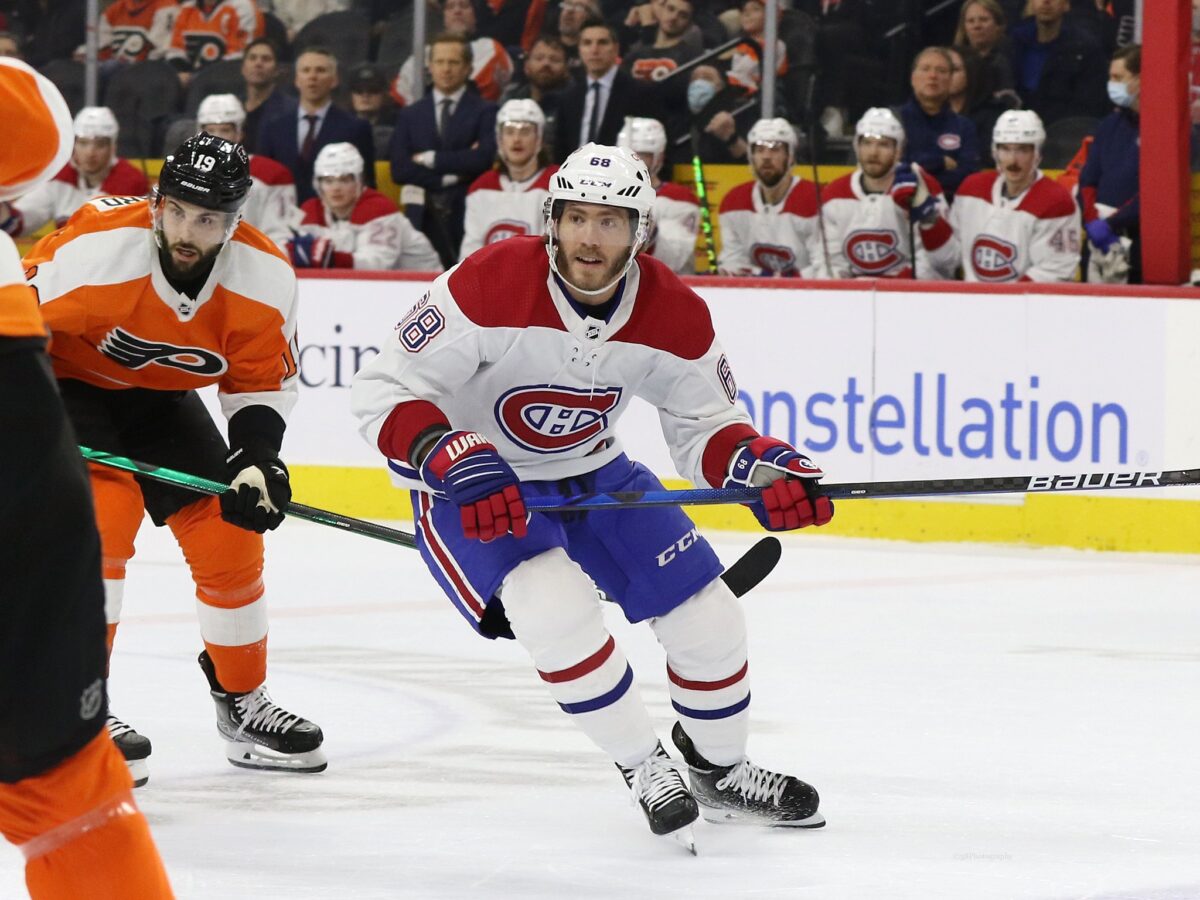
Consider burying a contract a last-ditch attempt at making room on the roster. A failure to do so would arguably make for a worst-case scenario, in which the Canadiens would be keeping a one-way deal on the roster at the expense of someone on a two-way, who may be more deserving of a spot with the Habs. With that in mind, here are the top five, ranked in order of least to most likely to be buried in the AHL during the 2023-24 season:
5. Brendan Gallagher
There is no doubt Brendan Gallagher’s contract is among the worst on the Canadiens (if not the absolute worst). There is debate as to whether or not the Habs would prefer to demote him over keeping him in the lineup, because of his 10-plus years with the franchise and the leadership he provides, even if it’s only in a bottom-six role despite his $6.5 million cap hit.
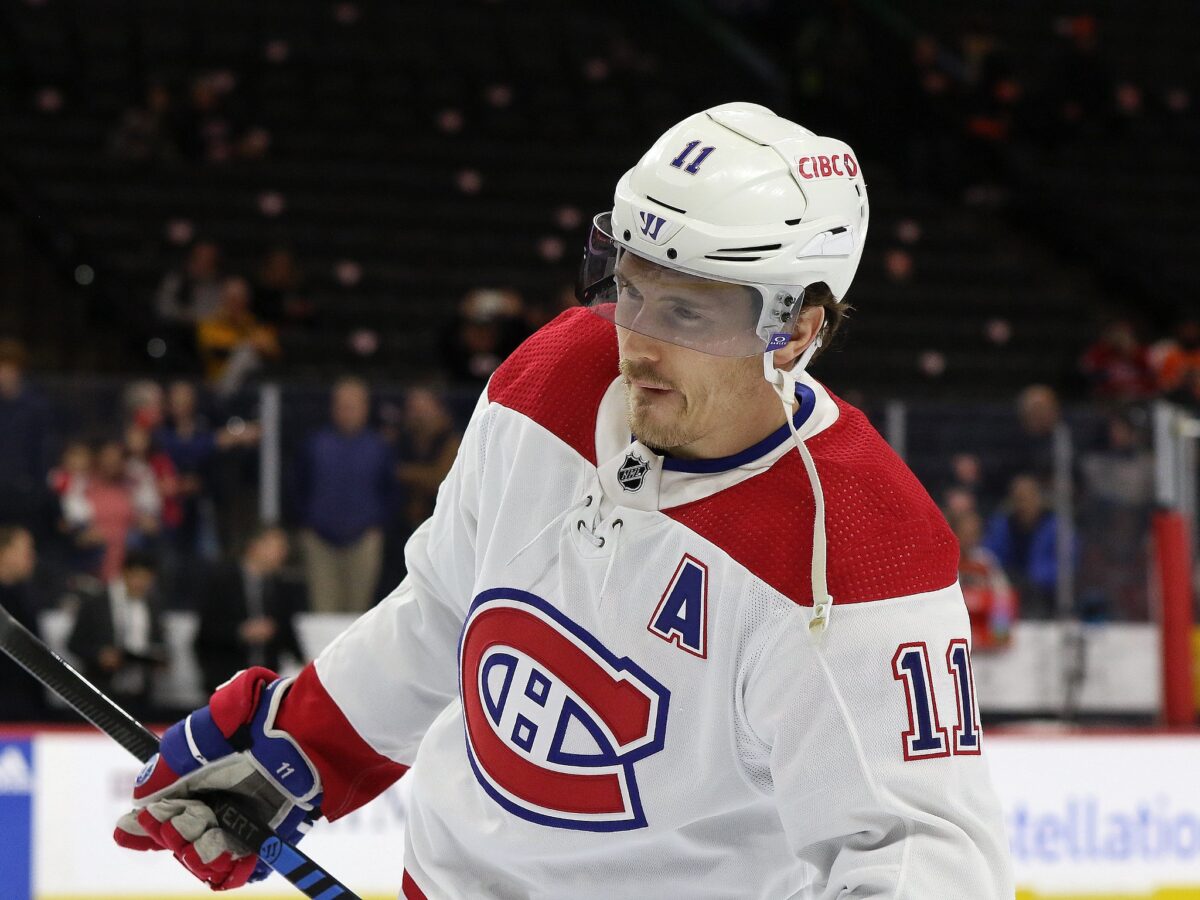
Ultimately, it’s a moot point. Gallagher has a no-movement clause. So, the only way he doesn’t play for the Canadiens next season is if he gets traded like Hoffman, but he has a modified no-trade clause. So, that too is unrealistic, albeit (just) slightly less so. Due to that cap hit, the four years he has left under contract, his age and the recent decline in his production, he’s not going anywhere.
4. Rafael Harvey-Pinard
At the opposite end of the spectrum, you’ve coincidentally got Rafael Harvey-Pinard, the man nicknamed “Lavallagher” based on how he plays the game similar to Gallagher. It’s also a play on how he’s plied his trade up to now with the Laval Rocket in the AHL. No longer (hopefully).
Of course, the idea behind trading Hoffman was presumably to make room for players like Harvey-Pinard. He’s a 24-year-old forward who began to establish himself as an NHL mainstay last season, having scored 14 goals and 20 points in 34 games. He was rewarded for his efforts with a one-way deal, making him technically eligible for this list, even if it would be counterintuitive for the Canadiens to demote him at this point.
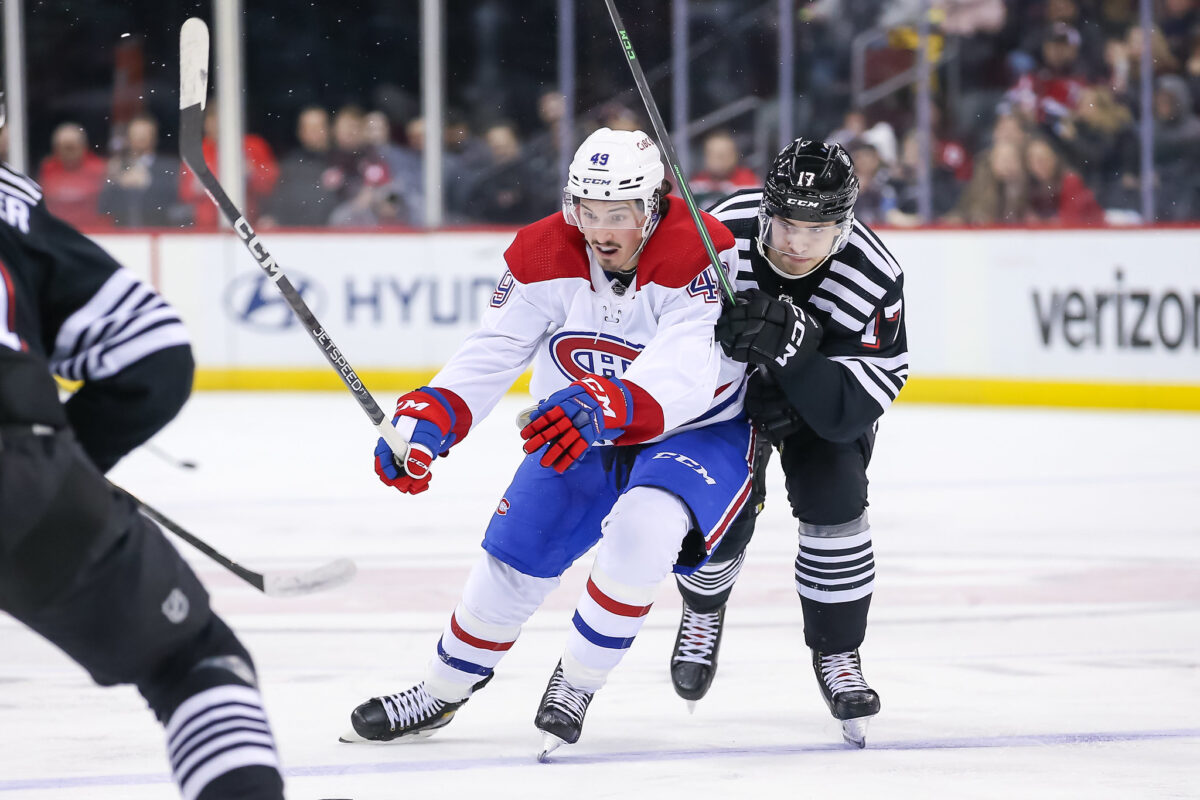
That having been said, Harvey-Pinard is waiver-exempt. So, if the Canadiens need to make additional roster room, cutting him would be tolerable, but less than ideal all the same. It’s much more likely he ends up earning more of a suitable nickname next season. “Montreallagher” doesn’t have the same ring to it, though. Plus, as previously established, they’ve already got one of those.
3. Joel Armia
Joel Armia ranks right up there as one of the bad contracts Hughes inherited (alongside Hoffman’s). His predecessor, Marc Bergevin signed Armia to a four-year deal with a $3.4 million cap hit as someone who could in theory move up and down the lineup. In practice though, Armia is buried on the depth chart below, younger, better, offensive talent to the point Hughes must consider burying the deal in the AHL instead.
It would solve a lot of problems. However, it would also open up a can of worms in that, unlike Hoffman, who was entering the last year of deal, Armia has two years left. Hughes is probably holding out hope he can trade him, if not this year than next. Burying him would be akin to throwing in the towel in that regard.

Keep in mind, Hughes would realistically have to retain salary on each year of Armia’s deal that remains to make him attractive to trade partners. It’s hard enough to wrap your mind around the idea of Hughes trading Armia if he waits a season. Imagine trying to trade Armia if he has no trade value whatsoever, after having spent this coming season in the AHL.
Of course, to Hughes’ credit, he worked a quasi-miracle trading Hoffman without having to retain salary there. So, on one hand, don’t write him off yet. On the other, if a trade for Armia was out there, he’d have probably found one by now, just like if there had been a trade for Hoffman last season he’d likely have been long gone. So, look for Armia to spend 2023-24 with the Canadiens in the realistic hopes Hughes can work his magic again next summer.
2. Jake Allen
It arguably would have made sense to bury Jake Allen even before Casey DeSmith got acquired in the Hoffman trade. With Cayden Primeau no longer exempt from waivers and Allen’s statistical efficiency in net waning each season, his leadership could maybe be put to better use in the AHL alongside Jakub Dobes, the team’s next great hope in net.
Cutting Allen makes even more sense now that they’ve acquired a younger veteran in DeSmith to presumably split the net with Samuel Montembeault, who’s arguably earned the No. 1 spot. What doesn’t make sense is carrying three goalies in the NHL when, as has been made clear throughout this piece, there are logjams across the lineup. The Canadiens need as much roster space as they can space up front and on defense (but more on the defense later on).
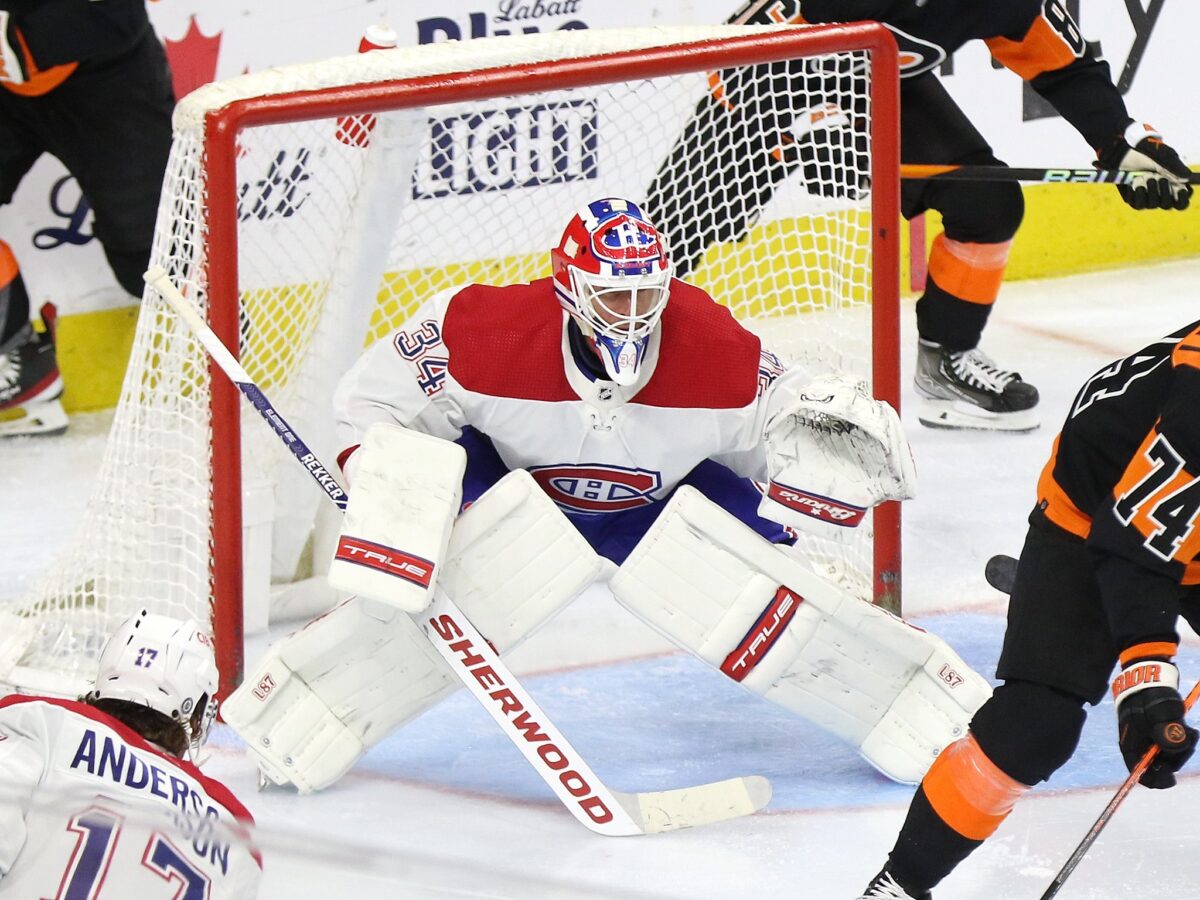
Now, it’s possible DeSmith was acquired to fill that leadership role in the AHL too. However, not only is he younger with more recent statistical success at the position, but he’s got a better contract ($1.8 million cap hit vs. $3.85 million for Allen). So, DeSmith is more likely to be claimed if he goes through waivers. And, on the off chance Allen gets claimed on his way down to the AHL, Hughes would probably be okay with it, considering the hit.
All that to say, the Canadiens don’t have the greatest organizational depth in net. So, they have to be strategic with the goalies they send down. Montembeault staying in the NHL is a given. Dobes is waiver-exempt and needs seasoning, so he’s going to the AHL in all likelihood. What happens between the three that remain is anyone’s guess at this stage, but logically one of Allen/DeSmith won’t start next season with the Habs (one way or another).
1. Chris Wideman
Similarly, there’s a chance Chris Wideman starts next season in the NHL, but it won’t necessarily be for lack of trying to bury him in the AHL on the part of the Canadiens. There just isn’t room for him on defense and it’s clearer now than ever before his ceiling is that of a depth defenseman, when the Habs’ clear priority is to give ice time to their younger guns.
That’s logically why Joel Edmundson got traded, to make room for the likes of Kaiden Guhle, Jordan Harris and Arber Xhekaj on the left. It’s why Wideman will most likely either be traded or sent down to make room for Johnathan Kovacevic and Justin Barron on the right, with veteran David Savard also in the mix. So, even without Jeff Petry, who was reacquired in the Hoffman trade and may get traded again himself, there isn’t room in the NHL.
The difference between Wideman and Allen is contract size. The Canadiens might think twice about paying a veteran a sizable NHL salary only to play in the AHL. However, Wideman’s $762,500 hit is small enough that it can be buried completely in the minors without counting against the cap.
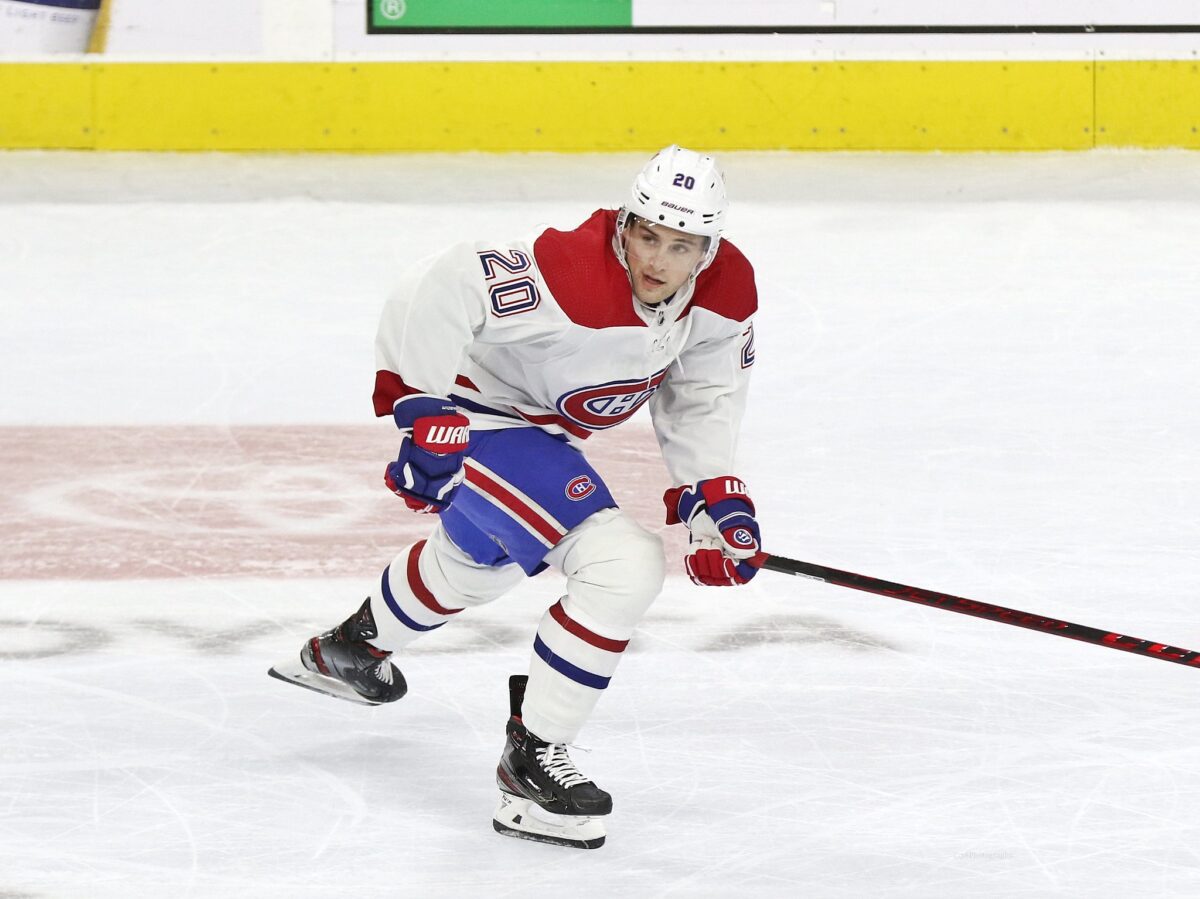
In an ideal world, the Canadiens would be able to keep Wideman in the fold as a depth option. If the last two seasons on the injury front have proven anything, it’s that they need depth. In a slightly less-than-ideal world, they’d trade him instead of facing the risk of losing him off waivers. However, after a six-assist season, Wideman’s trade value isn’t exactly high. So, it might be worth it to simply try to sneak him through waivers and hope for the best.
To Wideman’s credit, he’s proven himself as a capable NHLer as a member of the Canadiens, albeit with some obvious shortcomings in his game. So, if he does get claimed off waivers and a chance with another NHL team, power to him. For purely selfish reasons though, the Habs should hope no one does as he does contribute to the team’s depth at the position.
That depth is improving with each passing season. So, being in a position where the Canadiens can consider waiving a player like Wideman with close to zero organizational consequences (conveniently ignoring the personal from his perspective) is good. Wideman has been a good soldier up to now and deserves ice time, but it will realistically come with another team. Even if it’s not in his best interest, it could realistically be with the Rocket.